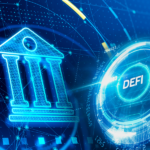
NFTs and Data Provenance in Scientific Experiments and Observations
- Antwan Koss
- June 23, 2023
- NFT
- Data, Experiments, nft, Scientific
- 0 Comments
Introduction
Data provenance, the ability to trace and authenticate the origin and history of data, is crucial in scientific research. Non-Fungible Tokens (NFTs) offer innovative solutions to enhance data provenance in scientific experiments and observations. This article explores the intersection of NFTs and data provenance, highlighting how NFTs can revolutionize the way scientific data is collected, validated, and shared. By leveraging the unique properties of NFTs and blockchain technology, researchers can establish transparent, verifiable, and immutable data provenance, bolstering the integrity and reproducibility of scientific research.
Understanding Data Provenance in Scientific Research
Data provenance refers to the documentation of the origin, lineage, and history of data. In scientific research, it encompasses the processes involved in data collection, transformation, and analysis. Data provenance plays a critical role in ensuring the integrity, reproducibility, and reliability of research findings. By tracing the journey of data from its source to its final analysis, researchers can validate and verify the authenticity of the data, assess its quality, and understand the context in which it was collected.
The Role of NFTs in Data Provenance

NFTs can revolutionize data provenance in scientific experiments and observations:
- Immutable Ownership Records: NFTs stored on the blockchain provide immutable records of data ownership. Researchers can tokenize datasets or specific data points, creating unique NFTs that establish clear ownership and attribution.
- Transparent Data Lineage: NFTs enable transparent data lineage by recording the history of data transformations, analyses, and contributions. Each step in the research process can be linked to a specific NFT, allowing researchers to trace the lineage of the data and verify its authenticity.
- Time-Stamped Data Authentication: NFTs can include time-stamped metadata that verifies the integrity and authenticity of the data at different stages of the research process. This enables researchers to establish a chronological record of data modifications and ensures data integrity throughout its lifecycle.
Tokenizing Data with NFTs
Tokenizing data with NFTs offers numerous benefits for data provenance:
- Unique Data Identification: Each NFT represents a unique identifier for a specific dataset or data point, ensuring its distinctiveness and preventing duplication or tampering.
- Immutable Data Records: Data stored within NFTs can be encrypted or hashed, ensuring its immutability and protecting it from unauthorized modifications.
- Smart Contract Compliance: NFTs can be associated with smart contracts that define usage rights, access permissions, and data sharing agreements. This facilitates secure data exchange and ensures compliance with data governance policies.
Verifiable Data Authentication with NFTs
NFTs provide mechanisms for verifiable data authentication:
- Digital Signatures: NFTs can be digitally signed by researchers or data collectors, providing verifiable proof of authorship or data origin.
- Peer Validation and Verification: NFT-based data provenance allows peers in the scientific community to validate and verify the authenticity and quality of data, enhancing trust and collaboration.
- Citation and Attribution: NFTs can include citation information, making it easier to attribute data contributions and acknowledge the work of data collectors and researchers.
Transparent Data Sharing and Access
NFTs enable transparent data sharing and access in scientific research:
- Access Control and Permissions: NFT-based data provenance allows researchers to define access control and permissions for data sharing. NFTs can be associated with smart contracts that govern data access, ensuring privacy, and data protection.
- Data Marketplace and Collaboration: NFT-based platforms can facilitate data exchange and collaboration between researchers. By tokenizing data, researchers can create a marketplace where datasets can be securely shared, licensed, or monetized, fostering collaboration and innovation.
- Data Transparency and Reproducibility: NFTs provide transparent records of data provenance, allowing other researchers to reproduce experiments, validate findings, and build upon existing research with confidence.
Challenges and Considerations
Implementing NFTs for data provenance in scientific research comes with challenges and considerations:
- Standardization and Interoperability: Establishing common standards and protocols for NFT-based data provenance is essential to ensure interoperability, compatibility, and seamless integration with existing research practices and infrastructures.
- Data Privacy and Security: Protecting sensitive or confidential data when tokenizing with NFTs requires robust data encryption, access controls, and compliance with data privacy regulations. Safeguards must be in place to prevent unauthorized access or data breaches.
Future Implications and Possibilities
The integration of NFTs in data provenance holds immense potential for scientific research:
- Enhanced Data Integrity: NFTs offer a means to establish robust and tamper-proof data provenance, increasing the integrity and trustworthiness of scientific data.
- Collaborative Research Networks: NFT-based data provenance can facilitate the creation of decentralized research networks, where researchers can securely share, validate, and build upon each other’s data, fostering collaboration and accelerating scientific progress.
NFTs and Reproducible Research
NFTs can greatly enhance the reproducibility of scientific research. By tokenizing data and linking it to unique NFTs, researchers can provide a comprehensive record of the entire research process. This includes details on data collection methods, experimental protocols, analysis procedures, and software versions used. The transparent and verifiable nature of NFT-based data provenance ensures that other researchers can access and replicate the study with confidence. This fosters transparency and strengthens the scientific method by allowing for independent validation and verification of research findings.
NFTs and Collaborative Data Curation
NFTs enable collaborative data curation among researchers. By tokenizing data with NFTs, multiple contributors can securely add their annotations, analyses, and interpretations to the data. These contributions are recorded on the blockchain, creating a collective record of knowledge and insights. NFT-based collaborative data curation fosters interdisciplinary collaboration, encourages diverse perspectives, and facilitates the integration of different research domains. Researchers can build upon each other’s work, leading to richer and more comprehensive scientific outcomes.
NFTs and Data Provenance in Multi-Institutional Studies
In multi-institutional studies where data is collected from multiple sources, NFTs play a crucial role in maintaining data provenance. Each participating institution can tokenize their contributed data, ensuring clear ownership and attribution. NFTs enable the tracing of data back to its source, establishing a transparent record of data contributions and transformations across different organizations. This promotes trust, accountability, and collaboration among institutions and enhances the overall integrity of the study. NFT-based data provenance in multi-institutional studies streamlines data sharing and simplifies the process of compliance with data governance regulations.
NFTs and Data Verification in Peer Review
NFTs can facilitate data verification in the peer review process. When submitting research findings for peer review, researchers can include NFTs that represent the data used in their study. This allows reviewers to access the original data, validate the results, and ensure that the research is based on reliable and authentic information. NFT-based data verification enhances the rigor and quality of the peer review process by enabling reviewers to examine the complete data lineage and confirm the reproducibility of the research. It promotes transparency and strengthens the integrity of scientific publications.
NFTs and Data Integrity Assurance
- Immutable Data Records: NFTs stored on the blockchain ensure the immutability of data, preventing unauthorized modifications and preserving the integrity of scientific experiments and observations.
- Tamper-Proof Data Provenance: NFTs provide a transparent and tamper-proof record of data provenance, allowing researchers to trace the origin and history of data with confidence.
- Verifiable Data Authenticity: NFTs enable researchers to verify the authenticity of data by associating digital signatures or certificates with the NFTs, ensuring that data has not been altered or tampered with.
NFTs and Data Attribution and Citations
- Enhanced Data Attribution: NFTs can include attribution information, such as the names of contributors and data collectors, making it easier to give proper credit and recognition to individuals who have contributed to the data.
- Traceable Data Citations: NFT-based data provenance facilitates the tracking of data citations, allowing researchers to accurately reference and attribute the data sources used in their research.
- Promoting Data Sharing and Collaboration: NFTs with clear data attribution and citations encourage data sharing and collaboration among researchers, as they can easily trace and validate the data sources used in their work.
NFTs and Data Ownership and Intellectual Property Rights
- Tokenized Data Ownership: NFTs can represent ownership rights to specific datasets, providing clear records of data ownership in scientific experiments and observations.
- Protecting Intellectual Property: NFTs enable researchers to protect their intellectual property rights by associating copyright or licensing information with the NFTs representing their data.
- Ensuring Data Usage Compliance: NFT-based data provenance allows researchers to define usage rights and access permissions, ensuring that data is used in accordance with established intellectual property rights and licensing agreements.
NFTs and Long-Term Data Preservation
- Permanent Data Records: NFTs stored on the blockchain create permanent and tamper-proof records of data, ensuring its long-term preservation and accessibility for future research.
- Decentralized Data Storage: NFTs can be associated with decentralized storage solutions, ensuring the resilience and availability of data even in the face of technological or institutional changes.
- Enabling Data Reproducibility: NFT-based data provenance facilitates data reproducibility by providing a complete record of the data’s origin, transformations, and analyses, allowing other researchers to replicate and validate the research.
Conclusion
NFTs have the potential to revolutionize data provenance in scientific experiments and observations. By leveraging NFTs and blockchain technology, researchers can establish transparent, verifiable, and immutable data provenance, bolstering the integrity and reproducibility of scientific research. The integration of NFTs in data provenance paves the way for a more transparent, collaborative, and trustworthy scientific ecosystem.





